Date: November 5th, 2013 10:08:53 p.m.
| In case you cannot read this newsletter please press here |

|
| For the greek version of this newsletter please press here |
|
What we saw on the 5th Week of AGORA With a ritualistic journey to the music of Iannis Xenakis, among the wooden female angels of Raymondos, Kyklos Ensemble opened the Fifth week of AGORA offering an unprecedented, almost otherworldly experience to those who attended, listeners under the dome-speaker of Sofokleous. The discussion that followed the screening of Ultimate Substance of Anja Kirschner & David Panos on Friday brought to the fore how the filmmakers approached hypothesis that the introduction of coinage in the ancient Greek world effected a profound cognitive shift that was key to the emergence of western philosophic, scientific and dramatic traditions. Subsequently, Valentina Karga and Pieterjan Grandry moving on to a lecture with performative elements, in a casual and humorous manner, give in to exploitation by creating a coin to substitute the value of their art. Fallen Fruit, a collaborative art project centered on fruit as positive symbol and primary material that can connect people and create a s ense of community, unfolded in AGORA over the weekend, with the mapping of fruit trees around the Acropolis, the interaction with passers-by in front of the Lemonade Stand outside Sofokleous, where people drew their portraits on lemons and in exchange they drank handmade lemonade, and the creation of lemon jam in AGORA on Sunday. On Saturday, the Value workshop started with a performance in the main hall of Sofokleous to develop once again with talks and happenings in the Machine Room. On the same day Danae Stratou presented the philosophy, the vision and the activities of the Vital Space participatory platform. Saturday evening closed with Romvos bringing in the Machine Room recordings from the Athenian kiosks. On Sunday Bankpoetry started, the poetry workshop of Suvi Nurmi that continues on to the week that is starting. Manolis Baboussis, who presented the work of Superstudio in the context of radical architecture as well as his work in AGORA, inaugurated OPSIS, a series of meetings among public, curators and artists will take place in front of particular works aiming to an interpretational approach, while the week closed with the teams Biotechwatch, Peliti, Management Body Mount Parnon, Hellenic Ornithological Society, Naturefriends Greece, eco-art, Free and real along with Tasos Kefalas and Athina Lambrinidou that brought Ecology at the center of KYKLOS.
|
The program of the sixth week of AGORA:For a detailed program of the sixth week of the 4th Athens Biennale AGORA, please visit our Calendar page. |

Suvi NurmiBankpoetry In Bankpoetry anyone is welcome to participate in a critical, yet playful poetry workshop, in which new texts are created by organising separate word notes and attaching them on a sheet of paper in preferred order.
Tuesday 5, Wednesday 6/11 , 17:00 – 20:00, Sofokleous 8–10 (Machine room) |
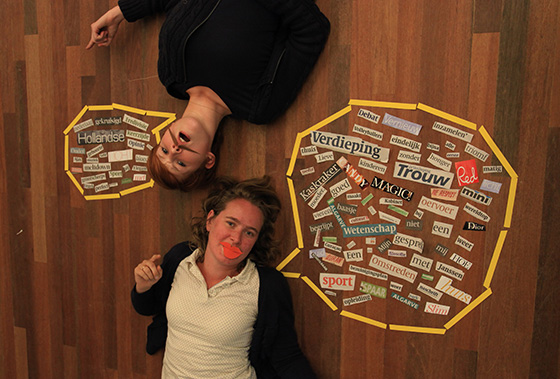
Giorgos PapadakisCultivating Innovation Skills The talk develops around the contribution of art in the economy and the educational activities of contemporary cultural institutions, which combine contemporary art with science and technology. It refers to creativity and innovation skills and presents recent examples of cultural institutions, in order to examine how educational activities cultivate these skills. Finally, there will be a summary of the problems in the organization of such educational activities by European cultural organizations.
Tuesday, 5/11, 19:00–20:00, Sofokleous 8–10 |
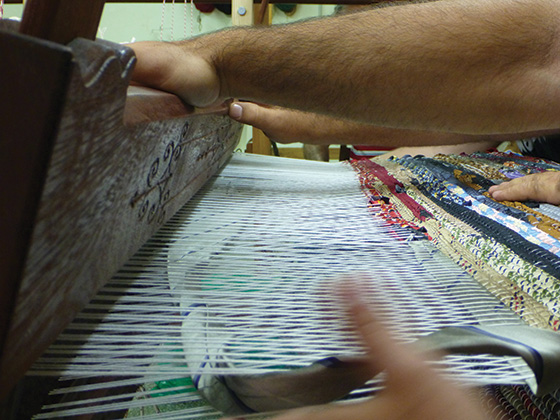
Fotini Gouseti & Taxideftes PolitismouSuggestions Supported "Taxideftes Politismou" (The Culture Travellers) is a Culture and Folklore Society founded in Athens two years ago by a group of young people aiming to mobilize their communities to better address the problems arising from the financial crisis. Artist Foutini Gouseti's latest project is based on research in Kalavryta, which hopes to identify the underlying tensions of the town's life in the present and their relation to its heavy load of history. In AGORA "Taxideftes Politismou" and Fotini Gouseti address the common space of their collaboration. They invite the public to an open dialogue, which aims to explore questions raised by such a convergence. Wednesday , 6/11, 19:00-21:00, Sofokleous 8–10 |
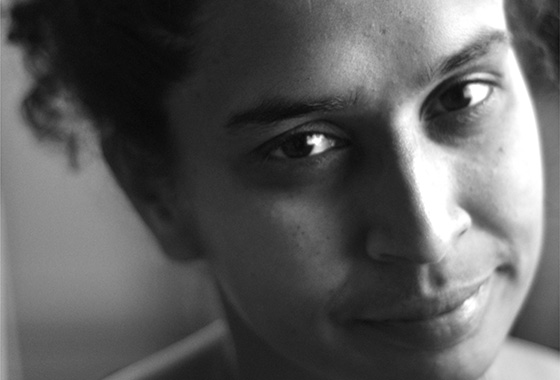
Nazima Kadir
Nazima KadirSitcom: Our Autonomοus Life Xenophobia within Radical Social Movements In AGORA Nazima Kadir will conduct two presentations on research questions that have emerged from her doctoral dissertation titled "The Autonomous Life: Paradoxes of Hierarchy and Authority in the Squatters Movement in Amsterdam". The dissertation is an ethnography based on three and a half years living and working in a squatters community in Amsterdam.
The sitcom "Our Autonomous Life" is based on the dissertation of Nazima Kadir. The sitcom has four episodes that imagine the conflicts and pleasure of squatting and communal living. Kadir will introduce the sitcom project and discuss the main theoretical arguments of the dissertation and how they were translated visually and comedically into a sitcom and its narrative structure. The theoretical issues in between episodes will be discussed, as well as how the sitcom was cooperatively produced by the participants, which led to both insights and challenges. |
Leda Papaconstantinou"Dedicated" The distinguished historian Mrs. Ant introduces the Spetses Players of 1975–1979. Expanding her personal archive with images and personal experiences, the renowned scholar recounts the birth and the legendary adventures of Bouboulitsa. Participating: Arleta, Eleftheria Koheila, Leda Papaconstantinou Friday 8/11, 19:00-21:00, 8-10 Sofokleous st. |

Katerina ZaharopoulouIn Agora x 4 Can an interview stand outside the media context? What is an on the road interview, apart from a reportage or opinion poll? How much can an everyday person, a person who lives, works or does not work in this contradictory city, penetrate the context of art and its structures? To what extent can artists dynamically infiltrate society? What exactly do they want to indicate with their images? Can we bring to the Athens Biennale people who do not know about it, people who simply do not know how to approach it? Is the relatively new trend in art for structures borrowed from other activities, like lectures, teaching etc., capable to involve the world inside and outside of it? Saturday, 9/11, 12:00–14:00, Varvakios Central Market |

VALUEworkshop Psychoanalysis and Values, talk by Dimitris Papaefthymiou (psychoanalyst). Are the different aspects of value (economic, moral, aesthetic etc.) connected to each other and if so in what ways? Is the present situation experienced as a multilayered "crisis of values"? How does the "market" redefine today the value of life along with the value of things? The VALUE workshop proposes a two months' collaboration of visual artists, social scientists, and theorists from different fields, who will take the anthropological perspective on "exchange" as a point of reference, while attempting to comprehend and comment on the ways value is created and experienced in everyday life. Visitors to the 2013 Athens Biennale are invited to participate in the weekly meetings, in the discussions and production of artistic work by the workshop's curatorial team, as well as by invited artists and theorists. The workshop's program can be found online at valueab4.wordpress.com. Coordination: Elpida Rikou (social anthropology / visual arts). Saturday, 9/11, 17:00–20:00, Sofokleous 8–10 |
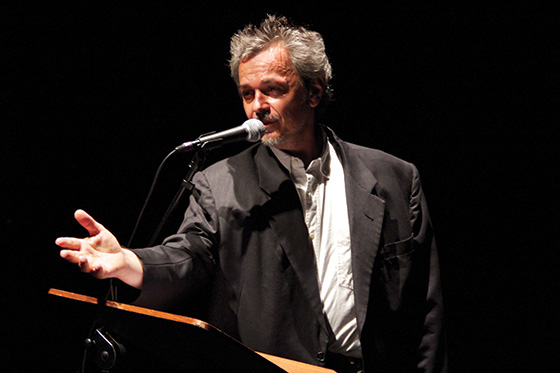
Konstantinos MihosExplaining the Crisis to a Young Dancer How can we understand Stalinism better by watching the Bolshoi? What is the relationship between Keynesian economics and the birth of Modern American dance? In order to understand the social interpretation of Nazism should you read "Mein Kampf" or Rudolf Laban's books on the description of movement? Are contact improvisation and improvised dance related to the anarchist movement or to the international monetary capital? Does Soros sponsor indymedia or conceptual dance shows in the former Socialist countries? Why does the average middle-class housewife voter of Golden Dawn go to dance shows and like them? What is the connection of shows at public spaces to their development and by whom? If we consider the body as an economic field, what are the blood, the muscles, the bones? What is the analogy of the '08 crisis with dance? Choreographic ideas as permanent residencies? In Europe the only economy with a surplus is Germany. Is it the same with dance? Do we import German dance? If, as ΕU economists suggest, the exit from the crisis is investment on cutting-edge technologies, what are the respective cutting-edge technologies in dance? Conceptual dance / release / shiatsu? Why do all of them emphasize the atomic solution? How is the choreographer of this performance exploiting the surplus value of the work of all of its participants? These plus more questions related to dance are answered in the lecture performance titled "Explaining the crisis to a young dancer". Taking the form of a lecture, this performance starts as a talk at an economic forum and subsequently, with metaphors-ratios of art and economic living, it uses the body of dancers, throughout which the history of Western dance runs, in order to highlight its deconstructed identity as an example of lack of social connection.
Direction – Choreography: Konstantinos Mihos Saturday, 9/11, 19:00–20:00, Sofokleous 8–10 |

Caveman JoeMusic Art can achieve nothing. All art funding must cease. Support the cuts. Support the cunts. Saturday, 9/11, 21:00–22:00, Sofokleous 8–10 |
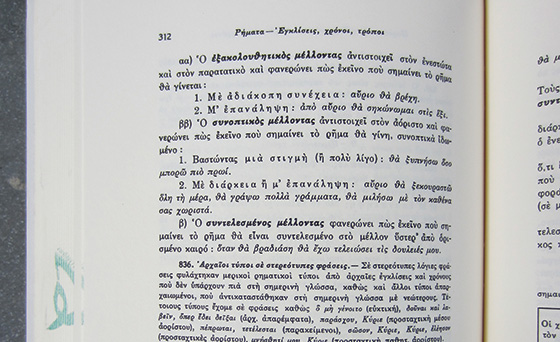
Soο-Young KimAn Inventory of Futures Soo-Young Kim is a doctoral candidate in anthropology at Columbia University. Her work examines the future as an object of thought, activity and concern in the present. Kim has just embarked on a yearlong ethnographic study of the future that emerges through economic forecasting in contemporary Greece. This study asks what happens when a form of technical knowledge becomes a matter of popular interest, a basis for decisive personal and political action, and a primary force in shaping modes of reckoning about the future both in Greece and of Greece. Her lecture An Inventory of Futures considers an array of future-making practices in the context of the crisis, in order to examine how the construction and circulation distinct futures serves as a crucial site for both establishing and contesting claims to knowledge and authority in the Greek present. Sunday, 10/11, 17:00–18:00, Sofokleous 8–10 |

OPSISArbit City Group The 4th Athens Biennale activates the artworks of the exhibition with the participation of the public. A series of meetings among public, curators and artists will take place in front of particular works aiming to an interpretational approach. An analysis of the relations among works, artistic practices will emerge through dialogue, while their connections to the thematics of this year's Biennale will also be discussed. On Sunday, 10 November at 5:00 pm, the work of Arbit City Group will be presented in the context of Pre-Institutional Critique Workshop that is realized with the cooperation of the ASFA Department of Theory and History of Art Sunday, 10/11, 17:00–18:00, Sofokleous 8–10 |
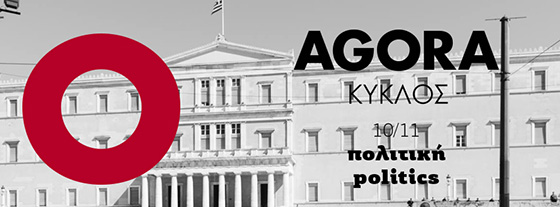
AGORA – KYKLOSPolitics For the realization of the basic purpose of AGORA, the main exhibition space, the ground floor of the Former Athens Stock exchange, where the trading of stocks used to take place, will remain free of exhibits at large so as to change functions depending on the circumstances. On Sunday 3 November at 6:00 pm, Politics will be at the ceter of the fifth thematic unit of Kyklos. Now what means... Democracy? How can the internet facilitate public discussion? What possibilities result from the adoption of new processes such as raffle and the referendum in Greece? Can we create a New Constitution for Greece by citizens for citizens? Six young people present ideas and initiatives designed to recreate our relationship with politics. Participants: Elina Makri – JoinOurSpace, Antonis Kalis – Klirosi (Raffle), Petros Vourlis – Referendums for Greece, Antonis Schwartz – VouliWatch, Stavros Kalenteridis – Dimokratia Ideon (Democracy of Ideas), Stefania Xydia – Politeia 2.0, Christos Lyderis – Protovoulia gia Riziki Syntagmatiki Allagi (Initiative for Radical Constitutional Change), Ioanna Skondra – Dimovoulio Politon Sunday, 10/11, 18:00–20:00, Sofokleous 8–10 |
The program of the 6th week of AGORA is as follows:TUESDAY 5/1117:00 – 20:00 Suvi Nurmi, Bankpoetry, workshop, Sofokleous 8–10 (Machine room)19:00 – 20:00 Giorgos Papadakis, Cultivating Innovation Skills, talk, Sofokleous 8–10 |
WEDNESDAY 6/1117:00 – 20:00 Suvi Nurmi, Bankpoetry, workshop, Sofokleous 8–10 (Machine room)19:00 – 21:00 Fotini Gouseti & Taxideftes Politismou, Suggestions Supported, discussion, 8–10 |
THURSDAY 7/1120:00 – 21:00 Nazima Kadir, Sitcom: Our Autonomous Life, presentation & discussion, Sofokleous 8–10 |
FRIDAY 8/1119:00 – 21:00 Leda Papaconstantinou, Arleta, Eleftheria Koheila, "Dedicated", Sofokleous 8–10 |
SATURDAY 9/1112:00 – 14:00 Katerina Zaharopoulou, In Agora (x) 4, performance, Sofokleous 8–10 (Varvakios Central Market)17:00 – 20:00 Psychoanalysis and Values, talk, Dimitris Papaefthymiou, Off Value – 4D, lecture performance, Theo Prodromidis, The Singing Head, George Le Nonce, Harry Houdini, Apostolos Lambropoulos, Sofokleous 8–10 17:30 – 19:00 Nazima Kadir, Xenophobia Within Radical Social Movements, lecture, Sofokleous 8–10 19:00 – 20:00 Konstantinos Mihos, Explaining the Crisis to a Young Dancer, lecture performance, Sofokleous 8–10 21:00 – 22:00 Caveman Joe, music, Sofokleous 8–10 |
SUNDAY 27/1017:00–18:00 Soο-Young Kim, An Inventory of Futures, lecture, Sofokleous 8–1017:00–18:00 OPSIS, Αrbit City Group, Sofokleous 8–10 18:00–20:00 AGORA KYKLOS: Politics, series of discussions, Sofokleous 8–10 |
4th ATHENS BIENNALE 2013 AGORANational Bank of Greece Building, 8–10 Sofokleous str.CAMP Contemporary Art Meeting Point, 4 Eupolidos & 2 Apellou str. 29th September – 1st December 2013 |
OPENING HOURSNational Bank of Greece Building, 8–10 Sofokleous str.CAMP Contemporary Art Meeting Point, 4 Eupolidos & 2 Apellou str. Tuesday–Friday: 13.00–21.00 Saturday & Sunday: 10.00–22.00 |
ADMISSIONAGORA offers a season ticket for the exhibition for 8 euros. The season ticket allows admission throughout the two months of the 4th Athens Biennale and for all the events hosted by the AGORA. Additionally, AGORA offers a daily ticket for 5 euros and a discount ticket for 3 euros, for students who hold a student ID, teens 12–18 years old and senior citizens (70 years old or above). Holders of the Manpower Employment Organization q(OAED) card, students of the Athens School of Fine Arts, members of the Chamber of Fine Arts of Greece, ICOM, AICA, IKT as well as special needs attendants are granted free entrance with appropriate ID. |
| For high resolution photographs, please visit the PRESS page of the AGORA webpage and the AGORA Facebook , Twitter, Instagram, Pinterest, Tumblr, YouTube, Vimeo pages. |
|
For more information please contact: Katerina Stavroula, Press Officer T: 0030 210 52 32 222, 210 52 32 224, Email: press@athensbiennial.org |
 |
|
<< Previous: 5th Athens Biennale 2013 AGORA WEEK 5 |
| Archive Index | |
Athens Biennale
Subscribe to Athens Biennale: